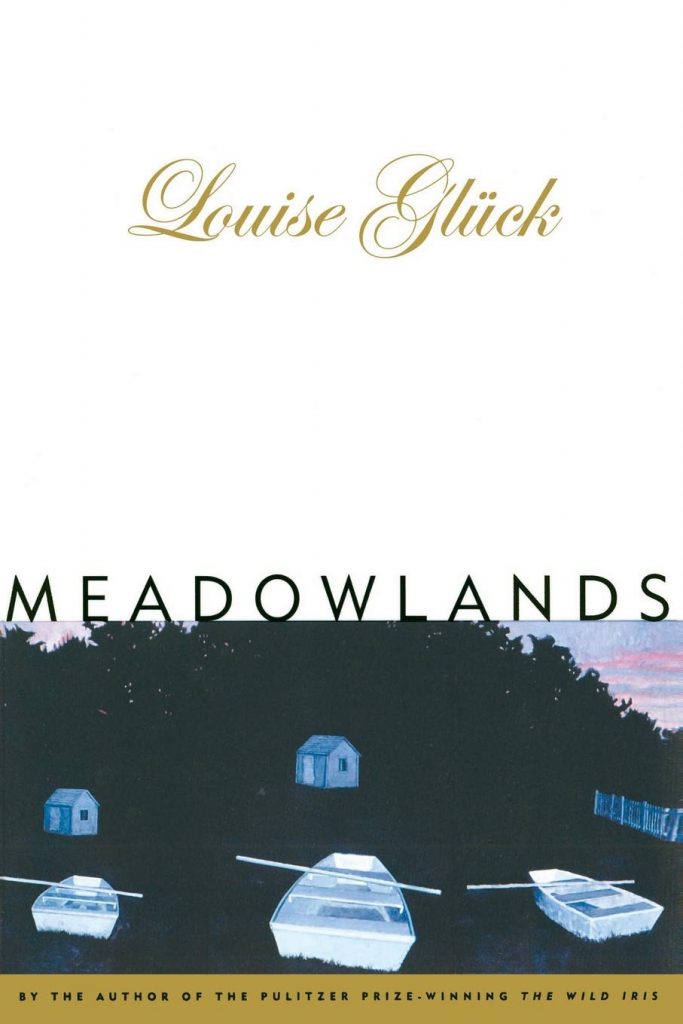The poet, Louise Gluck, is the winner of the 2020 Nobel Prize in literature. She is the first American woman to win this Nobel Prize in twenty-seven years, since Tony Morrison took the prize in 1993.

If I told you that I do not really enjoy Louise Gluck’s poetry, I know you would say, “How dare you!” not to bow to and not to love a winner. And this is not just any winner. We are talking about Louise Gluck, the winner of the Nobel Prize for literature in 2020. But please note: this is not to say that I don’t value, admire, or appreciate all the many different volumes of Louise Gluck’s books of poetry and all the work she has put into them. Never the less, I must be honest with you as I always am. Louise Gluck’s poems do not do a thing for me. Maybe it is because, as I have said many times in the past before, when it comes to poetry, I am in love with the poetry of the likes of Pablo Neruda, Federico Garcia Lorca , Charles Bukowski, and, from the list of more classic poets, my all-time favorite, Emily Dickinson. These poets’ works all ooze with feelings. I can read them every day and still come back for a second serving the next day without being bored. Maybe this list of poets have really spoiled me. I am looking for emotions so hot, that while cooking them mentally, it is like the poet has been holding the handle of a heated pot without a pot holder, and she could not possibly hold it, contain it much longer but to put all her thoughts and feelings into the format of a poem. Louise Gluck’s poems are not really emotional. They are lukewarm, and at times, they are even really cold! Louise Gluck’s poems just do not touch me, and they do not speak to me. I think a poet has to go into her poetry completely with a naked soul, not dress up her poems with fancy intellectual words and premeditated, calculated use of the language. Louise Gluck’s poetry is the kind that I would easily read for a class if I had to, but not merely for pleasure. Even though, while reading Meadowlands, once in a while, here and there, a line or two would jump to me and stand out on their own, I would find her poetry, in general, like a cold room on a snowy day — missing having a warm, cozy fire place or a wool blanket to bring in warmth and intimacy.
Parable of the Beast- Louise Glück The cat circles the kitchen with the dead bird, its new possession. Someone should discuss ethics with the cat as it inquires into the limp bird: in this house we do not experience will in this manner. Tell that to the animal its teeth already deep in the flesh of another animal.
Louise Glück
Louise Glück was born in New York City on April 22, 1943, and grew up on Long Island. She is the author of numerous books of poetry, including Faithful and Virtuous Night(Farrar, Straus, and Giroux, 2014), which won the 2014 National Book Award in Poetry; Averno (Farrar, Straus, and Giroux, 2006), a finalist for the 2006 National Book Award in Poetry; and Vita Nova (Ecco Press, 1999), winner of Boston Book Review’s Bingham Poetry Prize and The New Yorker’s Book Award in Poetry. In 2004, Sarabande Books released her six-part poem “October” as a chapbook.
Her other award-winning books include The Wild Iris (Ecco Press, 1992), which received the Pulitzer Prize and the Poetry Society of America’s William Carlos Williams Award; Ararat (Ecco Press, 1990), for which she received the Library of Congress’s Rebekah Johnson Bobbitt National Prize for Poetry; and The Triumph of Achilles (Ecco Press, 1985), which received the National Book Critics Circle Award, the Boston Globe Literary Press Award, and the Poetry Society of America’s Melville Kane Award.
In a review in The New Republic, the critic Helen Vendler wrote: “Louise Glück is a poet of strong and haunting presence. Her poems, published in a series of memorable books over the last twenty years, have achieved the unusual distinction of being neither ‘confessional’ nor ‘intellectual’ in the usual senses of those words.”
Glück has also published a collection of essays, Proofs and Theories: Essays on Poetry(Ecco Press, 1994), which won the PEN/Martha Albrand Award for Nonfiction. Her honors include the Bollingen Prize in Poetry, the Lannan Literary Award for Poetry, a Sara Teasdale Memorial Prize, the MIT Anniversary Medal and fellowships from the Guggenheim and Rockefeller Foundations, and from the National Endowment for the Arts.
The recipient of the 2020 Nobel Prize in Literature, Glück was elected a Chancellor of the Academy of American Poets in 1999. In the fall of 2003, she was appointed as the Library of Congress’s twelfth poet laureate consultant in poetry. She served as judge of the Yale Series of Younger Poets from 2003 to 2010.
In 2008, Glück was selected to receive the Wallace Stevens Award for mastery in the art of poetry. Her collection, Poems 1962-2012, was awarded the 2013 Los Angeles Times Book Prize. In 2015, she was awarded the Gold Medal for Poetry from the American Academy of Arts and Letters. Currently, Glück is a writer-in-residence at Yale University.
- Meadowlands
by Louise Gluck on Amazon
Tags: Book Review, Book Reviews, Literature, Louise Gluck, Nobel Prize, poems, Poetry
Posted in Book Reviews, Reviews |


Leave a Reply